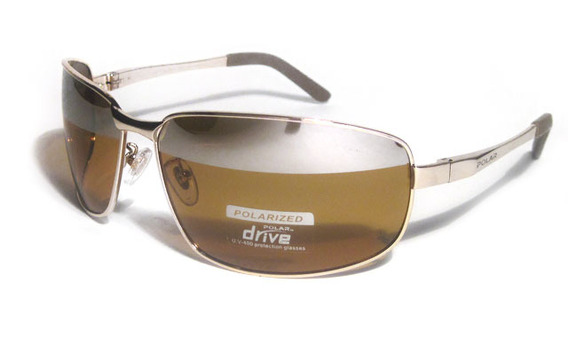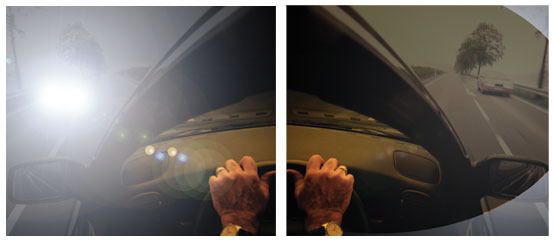
In recent times, the so-called anti-lamp glasses are gaining popularity among drivers, which improves visibility and reduces the load on sight while driving. But are the glasses really good? And how do we pick up the driver's glasses to make them really good?
Driving glasses can be selected separately for different conditions (sun, dusk, nights, etc.) or buy a universal model. A single requirement for all points-they must be polarized. Polarization allows the reflected light to be dissipated, so that the driver's field of vision will not be reflected from the windshield, the other cars or the wet road. By the way, the same polarized glasses are used by seafarers and fishers to remove the reflection from the surface of the water.

Several basic criteria should guide the selection of anti-headlights The lens material. It is desirable to choose glasses whose lenses are made of plastic or polymer, as glass lenses in the crash can crash and damage the face. UV protection. Like any other glasses, the antiheadlights must fully protect the eyes from ultraviolet (100% UV Protection label). Light permeability. For visibility to be perfect at night, the light permeability of driving points shall be at least 75%. Lens color. The scientists found that the lens of yellow, orange or red colour was the best in the driver's vision. At night, these colors make the contours of the objects sharper, as well as reduce the effect of dazzle by headlights (hence the name of the glasses for driving-"anti-headlights"). By the way, the most expensive glasses even provide for the possibility to replace lenses, in which case the driver can choose the color and intensity of blackout depending on the weather. Gradient coating. This is not necessary, but very convenient: in the upper part is the mirror, and the bottom lens is almost transparent. This coating is reliably protected from sunlight and at the same time allows you to clearly see the dashboard or the onboard computer screen. It's a scratching surface from scratches. Most likely, you will keep your glasses in the glove compartment or somewhere else in the car seat, so it's important that they are resistant to small scratches. Comfortable law. Before you buy your driving glasses, be sure to sample them. The glasses should not be pressure on whisky or on the bridge of the bridge of the nose, the broad uddans should not close the vision for side vision.
- The lens material. It is desirable to choose glasses whose lenses are made of plastic or polymer, as glass lenses in the crash can crash and damage the face.
- UV protection. Like any other glasses, the antiheadlights must fully protect the eyes from ultraviolet (100% UV Protection label).
- Light permeability. For visibility to be perfect at night, the light permeability of driving points shall be at least 75%.
- Lens color. The scientists found that the lens of yellow, orange or red colour was the best in the driver's vision. At night, these colors make the contours of the objects sharper, as well as reduce the effect of dazzle by headlights (hence the name of the glasses for driving-"anti-headlights"). By the way, the most expensive glasses even provide for the possibility to replace lenses, in which case the driver can choose the color and intensity of blackout depending on the weather.
- Gradient coating. This is not necessary, but very convenient: in the upper part is the mirror, and the bottom lens is almost transparent. This coating is reliably protected from sunlight and at the same time allows you to clearly see the dashboard or the onboard computer screen.
- It's a scratching surface from scratches. Most likely, you will keep your glasses in the glove compartment or somewhere else in the car seat, so it's important that they are resistant to small scratches.
- Comfortable law. Before you buy your driving glasses, be sure to sample them. The glasses should not be pressure on whisky or on the bridge of the bridge of the nose, the broad uddans should not close the vision for side vision.
Points for driving can also be with dioptrey, just like regular sunglasses. In this case, it is necessary to first visit the ophthalmologist, as it is not recommended to pick up points with diopters themselves.









